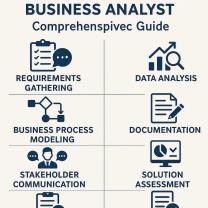What are the benefits of a corporation?
Incorporating a business offers several benefits that can be advantageous for entrepreneurs and companies:
Limited Liability: Shareholders in a corporation generally have limited liability, meaning their personal assets are protected in case of business debts or legal liabilities. Personal assets are typically not at risk beyond the amount invested in the corporation.
Separate Legal Entity: A corporation is a separate legal entity from its owners (shareholders). This separation allows the corporation to enter into contracts, acquire assets, sue, or be sued in its own name.
Ability to Raise Capital: Corporations can raise capital by issuing stocks or shares, allowing them to attract investments from a wide range of investors. This flexibility can aid in funding expansions, new projects, or day-to-day operations.
Perpetual Existence: A corporation can continue to exist even if ownership changes or key individuals leave or pass away. Its continuity isn’t as dependent on the involvement of specific individuals as in other business structures.
Tax Advantages: Corporations might benefit from certain tax deductions, credits, and allowances not available to other business structures. Additionally, they can have more options for tax planning and deferral strategies.
Credibility and Prestige: Being a corporation can enhance credibility with customers, suppliers, and partners, as it implies a level of stability, professionalism, and commitment to regulatory compliance.
Employee Benefits: Corporations can offer attractive benefits, such as stock options, retirement plans, health insurance, and other perks, aiding in employee retention and recruitment.
Transfer of Ownership: Ownership in a corporation is easily transferable through the sale or transfer of stocks or shares, facilitating changes in ownership without disrupting business operations.
These advantages make the corporate structure appealing for various businesses, especially those aiming for growth, seeking investment, or looking for legal protection for their owners. However, the decision to incorporate should consider the specific needs, goals, and circumstances of each business, as well as legal and tax implications, before choosing this structure.
Corporations offer a variety of benefits to their stakeholders, including:
1. Benefits for shareholders:
Limited liability: Shareholders' personal assets are protected from the corporation's debts and liabilities. This means that their maximum loss is limited to the amount they invested in the corporation.
Transferability of ownership: Shares of stock can be easily bought and sold on stock exchanges, providing shareholders with liquidity and the ability to realize the value of their investment.
Profit-sharing: Shareholders receive a portion of the corporation's profits in the form of dividends. Dividends can provide a steady stream of income for shareholders.
2. Benefits for employees:
Compensation and benefits: Corporations typically offer competitive salaries, benefits packages, and opportunities for advancement.
Training and development: Corporations often invest in training and development programs to help employees enhance their skills and knowledge.
Career growth: Corporations provide opportunities for employees to advance within the organization and take on more responsibility.
3. Benefits for customers:
Variety of products and services: Corporations offer a wide range of products and services to meet the diverse needs of their customers.
Innovation and research: Corporations invest in research and development to create new and improved products and services.
Global reach: Corporations often have a global presence, which allows them to provide products and services to customers worldwide.
4. Benefits for society:
Job creation: Corporations are a major source of job creation, providing employment opportunities for individuals and contributing to economic growth.
Tax revenue: Corporations pay taxes to governments, which helps to fund public services and infrastructure.
Philanthropic contributions: Many corporations make charitable donations to support various causes and community initiatives.
In addition to these benefits, corporations also offer several positive attributes that distinguish them from other business structures:
Efficient decision-making: Corporations have a clear organizational structure and defined roles and responsibilities, which can facilitate efficient decision-making.
Access to capital: Corporations can raise large amounts of capital through the issuance of stock and bonds, which allows them to expand their operations and pursue growth opportunities.
Limited lifespan: Corporations have a perpetual lifespan, which means that their existence is not tied to the life of any one individual. This allows for long-term planning and investment.
Overall, corporations offer a variety of benefits to their stakeholders and society as a whole. They are a driving force behind economic growth, innovation, and job creation, and they play a significant role in shaping the global economy.













